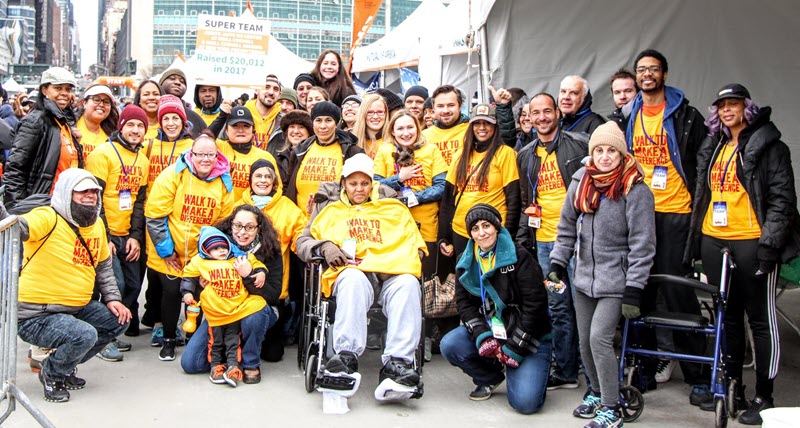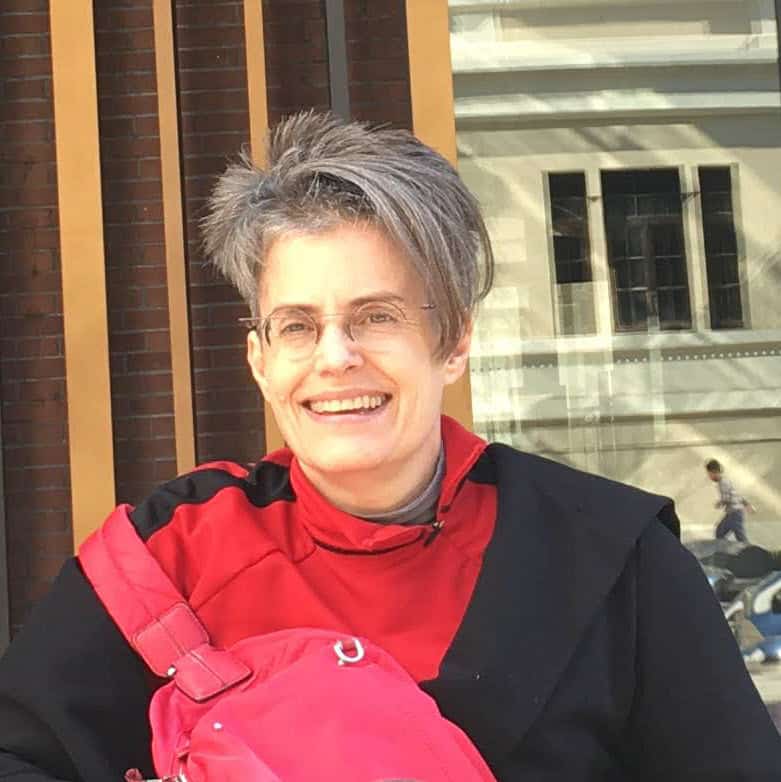
I’m Regina Schroeder, the founder of Mind Brain Philanthropic Foundation. I have Multiple Sclerosis (MS), and here’s my story.
How Mind Brain Foundation Came About
I’ve had MS for 42 years. There was nothing at all for MS in 1981; it was part of my denial to steer clear of neurologists for the next 30 years. I didn’t get an MS neurologist or take a Disease Modifying Therapy (DMT) until 2011. Until that point, I treated myself with diet, exercise, and vitamins only. I didn’t want anything to do with drugs that were not cures, that only treated the many symptoms that arise when the nerve covering that allows the rapid, accurate transmission of the nerve impulses needed for a typical human life disappears.
Today, I’m about to get on Ocrevus, my 4th DMT. I’ve learned enough about MS to understand that there will be no cure for MS. What there will be is a vaccine to stop anyone from ever getting this again, and therapies to regrow the myelin that is being eaten away by this monstrous disease.
So last year, my partner Ian Green and a dear cousin, Rosanne Elkins, and I started the Mind Brain Philanthropic Foundation to gather donations for investigations like the one going on at Weill Cornell Medicine to identify and repurpose FDA drugs approved for other diseases for MS.
DIY MS – Not Recommended
I turned 60 in 2021. For more than 30 of the first 42 years of this now very distressing mess, I directed my own course of treatment without the benefit of consulting a neurologist at all. My disease was relapsing-remitting for those years, and you probably didn’t believe me if I told you I had it. There were no drugs available when I got it in 1981 and I just didn’t understand then what I know now – how absolutely critical it is to have a relationship with a doctor you trust to guide you through the process of deciding which MS Disease-Modifying Therapies to use. Because getting on something gives far better results than doing nothing.
Time is Brain
After finding my neurologist in 2011, I gradually did a 180. DMTs are not easy to be on. MS drugs have side effects, and it would be easy to decide, especially in the first years of MS, when you are only beginning to feel bad, and you have periods of feeling better, that the drugs just weren’t worth the trouble. But Time is Brain in MS, as Dr. Gavin Giovannoni tells us.
Every minute you are not on a DMT, MS is literally eating away more of the coating that helps turn thought into action. Statistically, MSers who get and stay on a Disease Modifying Therapy have MUCH better outcomes than those who don’t. Those who don’t get on meds either become DIY alternative medicine neurologists or they may just give up, figuring nothing will make a difference anyway. Eat up, drink up, smoke up, we’re all going to die one day anyway.
For 30 years, I just did some combination of the Swank and Macrobiotic diets, exercised, ate a lot of expensive vitamins, and whatever else I thought had any chance of working. I never tried bee stings or snake venom, but I did drink ozonated water at Mom’s behest for a time. It didn’t work.
Accruing a Debt to Your Brain’s Plasticity
MS is another disease that tells you that you don’t have a disease and that you don’t really need treatment. Not having a doctor or taking drugs is a way of denying that you are really sick. The fact is you are very sick, as you swing between being incapacitated and being able to function. It is coming to stay, eventually. And when you don’t take medicine to stave off the inevitable decline, you begin to accrue a debt to your brain’s plasticity – its ability to accomplish tasks by avoiding damaged areas of the brain that you will never be able to repay. Because eventually, the entire brain is damaged.
Your neurologist can help you manage your swings between more and fewer debilitations. They can’t cure you yet, but they can give you a better outcome than you can by yourself. Statistically. I mean, there are outliers who are being followed by doctors, but that’s another story.

Regrets About Not Getting on Avonex in 1996
I’m not sure how I would have ever gotten myself on Avonex when it came out in 1996. It was not a cure, it didn’t even slow down disease progression. Everyone was so excited about this drug because it reduced the rate of relapse. I read this, with my BA in Asian Studies from CU Boulder, to mean that this drug did not truly work. Moreover, it gave you flu-like symptoms a few days a week. I didn’t even try to find a neurologist to explain this new drug to me, and maybe convince me to take it.
My regrets stem from seeing how well one of my MS therapists has done taking this drug almost as soon as it became available. She still sees patients, publishes papers, and has friends over for dinner. She does use a cane, but I am wall walking through my apartment – I just ordered a walker – and I haven’t worked since 2011. Outside, I use a wheelchair to get around. Could it have been different had I started taking the drug in 1996?
It’s not getting on Avonex that I regret, it’s having been my own doctor for so many years. Before 2011, I only saw a gynecologist. Now I have a neurologist, a urologist, and an infectious disease specialist.
I’m still questioning everything my doctors do, but I accept they know better than I do what is likely to work. There is such an array of considerations with MS, that it’s almost impossible for anyone who isn’t an expert to do so.
Cognitive Issues by 2000
By 2000, I was beginning to accrue disability and, though I only gradually realized it, was having cognitive issues. I was finding it harder and harder to get myself out of the house to go to work – I was exhausted after my shower – so I started working as a legal recruiter from home.
After the WTC bombings, international legal headhunting died and I got a job 3 days a week at the farmer’s market, which I loved. Once I had to miss work for a few weeks because I suddenly lost the ability to carry anything – I just crashed into the walls inside the truck. This cleared up, but it was scary. And I reveled in the long days, which began with unloading and loading the truck at 6:30 am. On Saturdays, we biked the 10 miles to Cadman Plaza from Harlem.
Then a bus ran over my foot in 2006, and I never truly recovered from that. My last job outside the home was for the US Census in 2010.

Self-Medicating with LDN and Other Drugs
I was already on LDN, another alternative treatment for autoimmune diseases, before starting an assistant position at the Census in 2010. It did seem to allow me to sleep better, and I felt I was doing something rather than diet and exercise for my MS. I swear I slept better with it. To get through a day at the Census, I drank a Red Bull every day at lunch.
I also took an inexpensive compounded drug called AP-4, the precursor to the very expensive Ampyra, which worked for almost 9 months. But eventually, I wound up with unbelievable leg spasms, the result of AP-4 NOT being time released. As soon as I lay down to sleep, the spasms would start.
Finally, a Neurologist in 2011, and the Debt I Can Never Repay
So I found my way into the office of Dr. Timothy Vartanian, a neurologist specializing in Multiple Sclerosis, in 2011. While reviewing the results of my first ever MRI, he read me the riot act he reads to all the patients who have been denying the existence of MS by refusing to use a DMA. He told me that I’d begun to accrue a debt that I would never be able to repay, but not to stress about it as it was water under the bridge. But I needed to get on a DMT as soon as I could.
So I started Tysabri, which I loved. I actually thought I would skate into the land of recovery and healing without paying the debt I had accrued by not getting on a DMT. I swear I started balancing better as the Tysabri was being infused into my arm. For a glorious few months on Tysabri, this seemed that I was on my way to a full recovery. I started fundraising for the MS Walk in 2012. Although I wasn’t able to walk the route that year, I thought I might well be able to the next year.

Secondary Progressive MS – or UTI?
Then the UTIs started. UTIs give MS patients pseudo exacerbations that clear completely with a course of an effective antibiotic. Except as Relapsing-Remitting MS (RRMS) slides into Secondary Progressive MS (SPMS), you just don’t return to your baseline anymore. I am struck by the fact that I feel, though am not sure, that UTIs are going to take me down before MS does. Anecdotally, I have several friends who also believe that constant UTIs started their downward descent into SPMS.
Fundraising – Humbling and Exhilarating
Fundraising is humbling because the need for research funds is constant – so you always have your hand out asking for donations for this walk, that climb, or another cycling event. At the same time, it is exhilarating when people are so kind and responsive and you always wind up with way more than you ever imagined.
The Mind Brain Philanthropic Foundations’ (MBPF) mission is general: to fund research into the causes of brain diseases and therapies for them.
We’ve already raised over $200K using others’ platforms for MS fundraising. We got the idea to start our own foundation when we learned that my MS neurologist has investigations in progress at Weill Cornell Judith Jaffe – research that could benefit the millions of MSers like me who have had MS for years.
And so the focus of our first campaign – The Unrealized Promise of Repurposed Drugs for MS – is focused on Multiple Sclerosis. We are going to raise more money than we ever dreamed of – with your help.
MS Truly Has Me Focused on Donations For Promising Research
I don’t mind saying it because it’s true: with this foundation, I’ve got MS and now, MS truly has me.
All my energy is now spent finding the donations to keep promising research going. Please join me (us) as (I) we to make good use of the connections, the goodwill, and the humanity this disease has brought (me) us.
Thank you for reading,
Regina